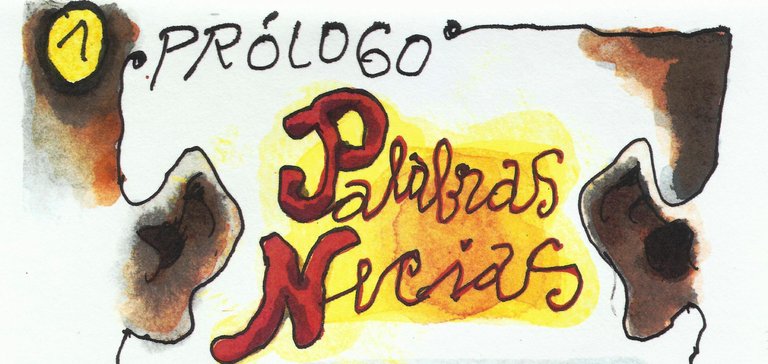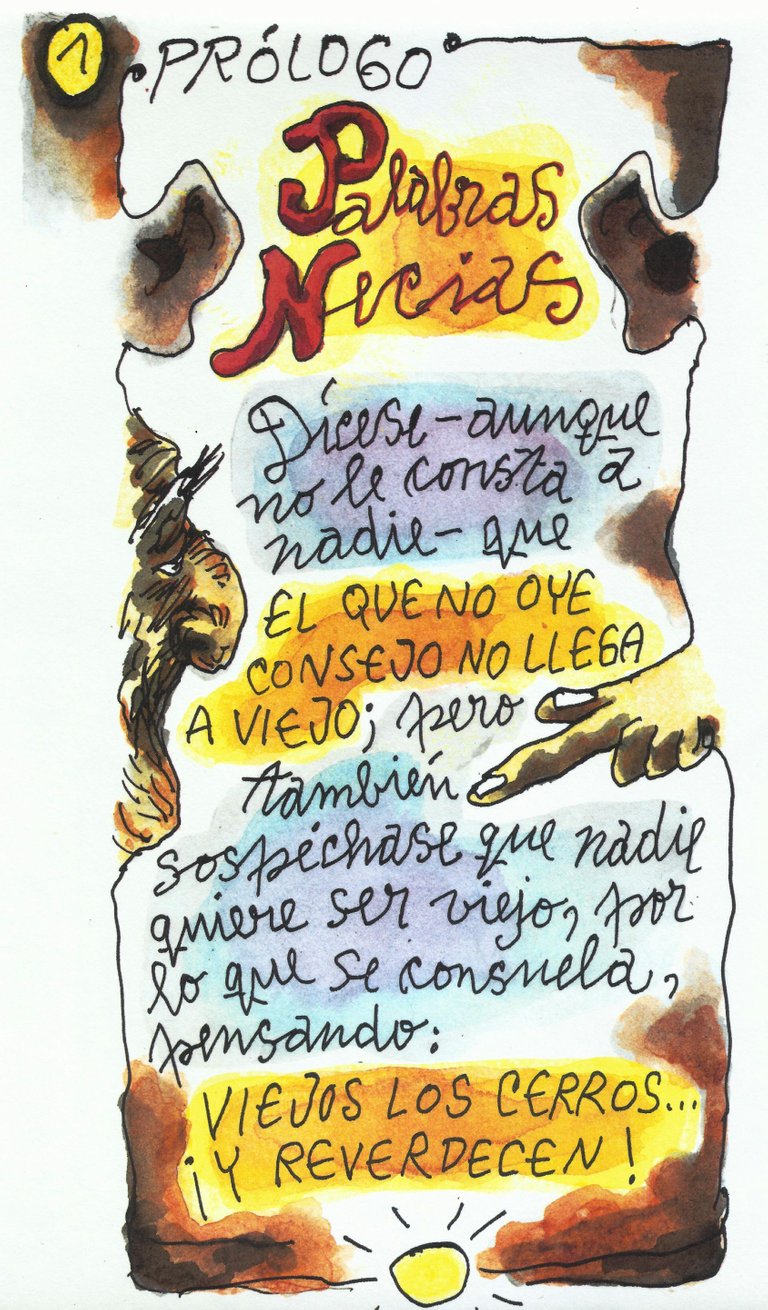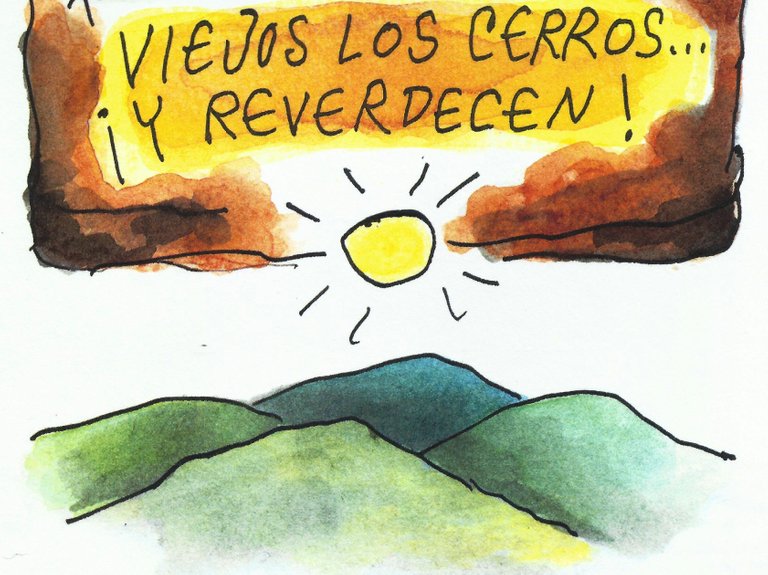Refrains from a hostile land pt. 1

Folklore — noun. traditional customs, tales, sayings, dances, or art forms preserved among a people.
Merriam-Webster Dictionary.
One of the characters most closely associated with the best of Venezuelan art is Zapata, who during his lifetime was a painter, caricaturist, and, above all, humourist. Numerous drawings, paintings, caricatures, murals, and three-dimensional works bear his signature, to mention just a few media. His language and identity are singular, unique, recognizable, and recognized by all those who, like me, used to find in the newspaper El Nacional his ingenious translation of our reality, in the form of caricatures. His humour section was published from 1965 until February 6, 2015, the date of his death.
Uno de los personajes más entrañablemente asociados con lo mejor de la venezolanidad es Zapata, quien en vida fuera un pintor, caricaturista y, por encima de todo, humorista. Llevan su firma numerosos dibujos, pinturas, caricaturas, murales y obras tridimensionales, por mencionar solo algunos medios. Su lenguaje y su identidad son singularísimos, reconocibles y reconocidos por todo aquel que, como yo, solía encontrar en el periódico El Nacional su ingeniosa traducción de nuestra realidad, en forma de caricaturas. Su sección humorística fue publicada desde 1965 hasta el 6 de febrero de 2015, fecha de su muerte.
Pedro León Zapata was born in La Grita (Táchira State), in 1929. He studied painting first in Caracas, our capital, and later in Mexico, where he lived for eleven years. Mordacious yet respectful, sharp and tender, incisive and poetic, Zapata invites his audience to see the world from another perspective, almost always unusual but never far-fetched. When reading his work, intellectual complicity is always established between Zapata and me, and it speaks of heartache and nonconformity as well as of strength and stoicism.
Pedro León Zapata nació en La Grita, Estado Táchira, en 1929. Estudió pintura primero en Caracas, nuestra capital, y porsteriormente en México, país en el que vivió durante once años. Mordaz aunque respetuoso, agudo y tierno, incisivo y poético, Zapata invita a su público a ver el mundo desde otra perspectiva, casi siempre insólita pero nunca rebuscada. Al leer sus trabajos, se establece siempre entre Zapata y yo una complicidad intelectual que habla de sinsabores e inconformidad a la vez que de fortaleza y estoicidad.
I decided to start sharing on a weekly basis, one by one, this series of refrains illustrated by Zapata, adding my own experience and vision. By doing so, I aim to contribute to the modification of the discourse through which the world refers to my country of origin, Venezuela. I am realistic enough to know that my contribution is nothing more than a grain going against the current in a sandstorm, but I cannot resist or suppress the impulse to wish for a change.
Decidí comenzar a compartir de manera semanal, uno a uno, esta serie de refranes ilustrados por Zapata, añadiendo mi propia experiencia y visión. Haciendo esto, quisiera contribuir a modificar el discurso a través del cual el mundo se refiere a mi país de origen, Venezuela. Soy lo suficientemente realista como para saber que mi aporte no es más que un grano yendo a contracorriente en una tormenta de arena, mas no puedo evitar o suprimir el impulso de desear un cambio.

Prologue No. 1
Foolish words
"It is said, although it is not proven by anyone, that
he who does not hear advice does not grow old
but it is also suspected that no one wants to be old, so they console themselves, by thinking:
old, the hills... and they still become verdant!"
— Zapata
There are two interesting sayings contained in the text I quote above. I will analyze them separately and then comment a bit about why these particular sayings are so connected, as Zapata well expressed with his illustration.
Hay dos interesantes refranes contenidos en el texto que cito arriba. Los analizaré por separado y luego comentaré un poco acerca de por qué estos dichos particulares se conectan tanto, como bien supo expresar Zapata con su ilustración.
"He who does not listen to advice, does not grow old", goes the saying, although no one has checked whether, in fact, those who are no longer with us could have reached immortality just by listening to the others a little more. It is clear that in primordial times, not following the herd represented an almost certain death, since conditions were so hostile for such a fragile bundle of flesh and bone as a human being can be.
"El que no oye consejo, no llega a viejo", dice el dicho, aunque nadie ha comprobado si en efecto aquellos que ya no están podrían haber alcanzado la inmortalidad con tan solo escuchar un poco más a los demás. Está claro que en tiempos primordiales, no seguir a la manada representaba una muerte casi segura, siendo tan hostiles las condiciones para un paquetico de carne y hueso tan frágil como lo puede ser el ser humano.
First of all, it is appropriate to ask, "Whose advice?" Billions spend their days conversing with the imaginary friend(s) associated with their religion of choice, perhaps oblivious to the fact that its voice cannot and should not be any other than their own. We carry the wisdom of centuries in our DNA, there to be heard and interpreted, but we forget it or are made to forget it. With so many more or less rational beings in the world, too many, if we're honest, one might fear the possibility that they all decided to listen to their inner voices at the same time. Thus, the modern world seems to be designed to feed us the advice that best suits the interests of a few. Now, to listen or not to listen, that is the question.
Primero que nada, es adecuado preguntarse, "¿el consejo de quién?" Miles de millones dedican sus días a conversar con el, o los, amigos imaginarios asociados a su religión de preferencia, olvidando quizás que la voz de éste no puede ni debe ser otra que la propia. La sabiduría de siglos la llevamos en nuestro ADN, allí para ser escuchada e interpretada, pero se nos olvida, o nos hacen olvidarlo. Con tantos seres más o menos racionales en el mundo, demasiados, si somos honestos, cabe temer la posibilidad de que todos decidieran a la vez escuchar sus voces internas. Así, el mundo moderno parece estar diseñado para alimentarnos el consejo que mejor se adapte a los intereses de unos pocos. Ahora, escuchar o no escuchar, esa es la cuestión.
But do we actually want to become old? We wish to endure, yet we are made to want to look perfectly young forever. The media says so, and that's what we chase after, as a society. Perfection, and stillness in time. Both ideals are unattainable in this reality. Wouldn't it be better, and far more possible, to aim at growing old after having truly lived? We should wish to grow old, wiser, kinder, in good health. And that, without missing the opportunity that each day brings in itself, a chance of fully experiencing life. What's stopping us, really? Nothing but ourselves.
Pero, ¿realmente queremos envejecer? Deseamos perdurar, pero nos hacen querer lucir perfectamente jóvenes para siempre. Los medios de comunicación lo dicen, y eso es lo que perseguimos, como sociedad. La perfección, y la quietud en el tiempo. Ambos ideales son inalcanzables en esta realidad. ¿No sería mejor, y mucho más posible, aspirar a envejecer después de haber vivido de verdad? Deberíamos desear envejecer, más sabios, más amables, con buena salud. Y eso, sin perder la oportunidad que cada día trae en sí mismo, una oportunidad de experimentar plenamente la vida. ¿Qué nos lo impide, en realidad? Nada más que nosotros mismos.
"Old, the hills... And they still become verdant!" We often give too much weight to the past, overlooking the fact that we have a present we can act on, however small our action may be. We are X years old, yes, and no matter how high that number might go, we can learn. We can love, ourselves and others. We can choose to be kind and to help, just for the sake of being truly human. And yes, there will be falls and hits we'll have to take. What's most important is to always pick ourselves up, dust off, and keep going. Greening up, like the timeless hills, not only in spite of adversity but because of it.
"Viejos, los cerros... ¡Y aún así reverdecen!". A menudo damos demasiado peso al pasado, pasando por alto que tenemos un presente en el que podemos actuar, por pequeña que sea nuestra acción. Tenemos X años, sí, y por muy alto que sea ese número, podemos aprender. Podemos amar, a nosotros mismos y a los demás. Podemos elegir ser amables y ayudar, sólo por el hecho de ser verdaderamente humanos. Y sí, habrá caídas y golpes que tendremos que recibir. Lo más importante es que siempre nos levantemos, nos quitemos el polvo y sigamos adelante. Reverdeciendo, como las colinas eternas, no sólo a pesar de la adversidad, sino gracias a ella.

- Pedro León Zapata & Fundación Empresas Polar. (2015). Los refranes más ilustres ilustrados por Zapata. Caracas: Editorial Exlibris.
I'd like to thank you for reading this. I hope my words resonated with you in some way. If they did, or even if they didn't, I'd like to further connect with you, so I invite you to drop a comment and I'll answer it as soon as I can.
It’s too true...we have to be perfect - no we shouldn’t have to be, but perfection (beauty) is the first thing people seem to perceive about someone else. When I was at varsity I was friends with a very, very beautiful girl (still friends with her, she’s still beautiful, just older), but she used to HATE her looks, she was always trying to find people who liked her for her brains, her ability, her personality. - it made her difficult to be friends with, actually. Anyway, I digress, I think if only we could adhere to your view, the world would be a better place. ❤️💕❤️💕❤️❤️
I think it's not quite healthy to strive for perfection. A more human way to live would be to just aim to be better versions of ourselves each day. We will never be perfect, but we can certainly be better. And that's a commendable goal to pursue.
It's good to have so many points of view and opinions; diversity adds depth and value, in most cases. What's not so good is that the media seems to be shaping humanity to a dull uniformity of sad, angry beings wishing to achieve something that doesn't exist: perfection. Hopefully, we can change course before it's too late. I'd really like that.